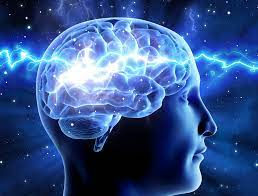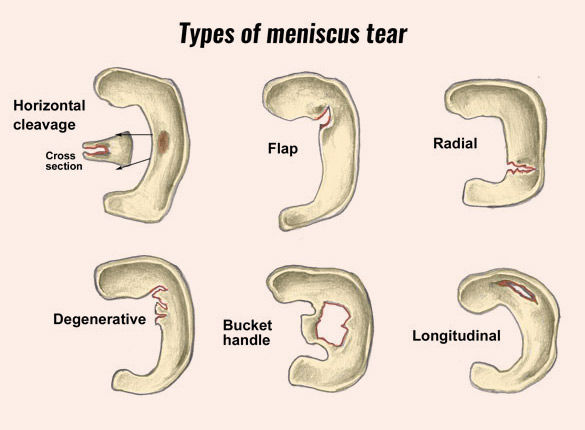Understanding Brain Stem Reflex – The Core of Human Survival | Physio360 Chennai.
- PHYSIO 360

- Oct 30, 2025
- 3 min read

Introduction
The brain stem reflex is one of the most vital automatic responses controlled by the lower part of the brain – the brainstem. It ensures essential body functions like breathing, heart rate, and swallowing continue without conscious effort. At Physio360 Chennai, we emphasise the importance of understanding brain stem reflexes, especially in neurological physiotherapy, rehabilitation, and brain injury recovery.
What is the Brain Stem?
The brain stem is the lower extension of the brain that connects to the spinal cord. It consists of:
Midbrain 🧠
Pons
Medulla Oblongata
These three regions coordinate many reflex actions crucial for survival. Physiotherapists at Physio 360 carefully assess these reflexes during neurological evaluations.
What are Brain Stem Reflexes?
Brain stem reflexes are automatic, involuntary reactions that occur when the brain stem responds to specific stimuli. These reflexes are often tested to evaluate the function of cranial nerves and brain stem integrity.
Key Reflexes Controlled by the Brain Stem:
Pupillary Light Reflex
Stimulus: Shining light into one eye.
Response: Both pupils constrict.
Clinical Significance: Tests the function of the optic and oculomotor nerves.
Corneal Reflex
Stimulus: Touching the cornea with a cotton swab.
Response: Immediate blinking.
Importance: Indicates proper trigeminal and facial nerve function.
Gag Reflex (Pharyngeal Reflex)
Stimulus: Touching the back of the throat.
Response: Contraction of the throat muscles.
Indicates: Glossopharyngeal and vagus nerve integrity.
Vestibulo-Ocular Reflex (VOR)
Function: Stabilises gaze during head movements.
Assessment: Used in physiotherapy for balance and dizziness management.
5. Jaw Jerk Reflex
Test: Light tap on the jaw while the mouth is slightly open.
Response: Quick closing of the jaw.
Indicates: Trigeminal nerve and upper motor neuron involvement.
Why is Brain Stem Reflex Testing Important in Physiotherapy?
At Physio360 Chennai, brain stem reflex testing plays a major role in neurological assessment and rehabilitation planning. These reflexes:
Help identify neurological damage or brain stem dysfunction.
Aid in differentiating between upper and lower motor neuron lesions.
Guide the rehabilitation approach for patients with stroke, traumatic brain injury, or coma.

Clinical Conditions Associated with Brain Stem Reflex Impairment.
Brain stem reflexes may be diminished or absent in:
Brain stem stroke
Traumatic brain injury
Multiple sclerosis (MS)
Amyotrophic lateral sclerosis (ALS)
Coma and brain death (loss of all brain stem reflexes is a key indicator)
Physio360 Approach to Brain Stem Reflex and Neuro Rehabilitation.
At Physio360 Chennai, our specialised neurological physiotherapists focus on:
Comprehensive Neuro Assessment – including reflex testing, cranial nerve evaluation, and postural analysis.
Brain Stem Stimulation Exercises – gentle sensory and motor activities to re-engage reflex pathways.
Balance and Gait Training – targeting vestibular and visual reflex mechanisms.
Respiratory Physiotherapy – improving automatic breathing control managed by the brain stem.
Patient and Family Education – explaining the significance of reflex activity in recovery.
Rehabilitation Techniques Used at Physio360 Chennai.
Our physiotherapists integrate evidence-based neuro techniques such as:
Bobath Approach (Neuro-Developmental Therapy)
PNF (Proprioceptive Neuromuscular Facilitation)
Sensory Integration Therapy
Reflex Re-education Training
Functional Electrical Stimulation (FES)
These methods help in reactivating suppressed reflexes and enhancing neural connectivity, supporting faster recovery.
Did You Know?
The brain stem is responsible for 95% of automatic body functions.
Damage to the brain stem can disrupt vital functions even if other brain parts remain intact.
Physiotherapy can stimulate neuroplasticity, enabling other brain areas to take over lost functions.
Role of Exercises and Reflex Integration.
At Physio 360 Chennai, we recommend specific reflex integration exercises such as:
Head-turn and gaze stabilisation drills
Deep breathing and diaphragmatic control exercises
Eye-tracking and coordination activities
Vestibular stimulation through balance board exercises
These exercises improve sensory-motor integration, body awareness, and neurofunctional recovery.
Case Example from Physio360 Chennai.
A patient post–traumatic brain injury showed loss of gag reflex and dizziness. Through a tailored physiotherapy program including vestibulo-ocular reflex retraining and cranial nerve stimulation, the patient regained swallowing reflexes and balance within weeks — demonstrating the effectiveness of Physio360’s neurorehabilitation approach.
Conclusion.
The brain stem reflex plays a critical role in maintaining vital bodily functions and reflex actions. Proper assessment and rehabilitation are essential for neurological recovery. At Physio360 Chennai, our expert physiotherapists use advanced neuro-physiotherapy protocols to assess, train, and restore brain stem reflex activity — helping patients achieve better coordination, control, and independence.

Visit Physio360 Chennai
For expert neurological physiotherapy, brain injury rehabilitation, and reflex re-education therapy, visit:
Physio360 Centre, Chennai.
REFERENCE AND RESEARCH ARTICLE.
1.Maturation of blink reflex in childrenhttps://doi.org/10.1016/S0387-7604(89)80022-1




Comments